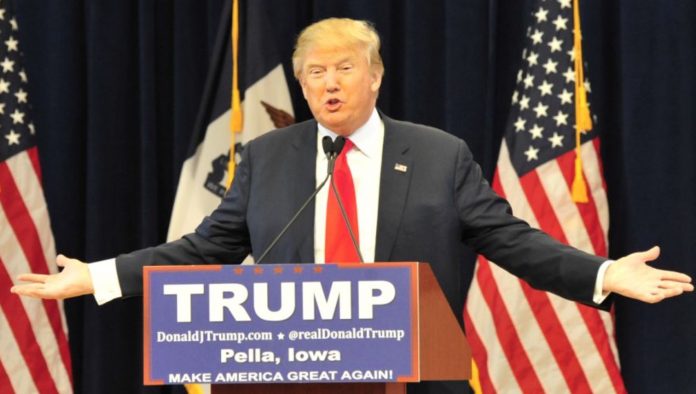With the late Supreme Court Justice Antonin Scalia’s seat on the line—not to mention a couple others likely to open up over the next four to eight years—who fills that seat will almost certainly and profoundly impact the future of LGBT rights in a big way.
Those who saw Bay Windows editor Sue O’Connell interview Donald Trump last week on New England Cable News, might believe Donald Trump might—just might—support LGBT rights, as his statement would suggest (and way to go, Sue, for getting Mr. Trump to speak so coherently for at least five minutes on a whole range of issues! Not something we see on the news too much.):
O’Connell: “When President Trump is in office, can we look for more forward motion on equality for gays and lesbians?”
Trump: “Well you can, and look—again, we’re going to bring people together. That’s your thing, and other people have their thing. We have to bring all people together. And if we don’t, we’re not gonna have a country anymore. It’s gonna be a total mess.”
Important to note, though: This exchange comes just days after Trump told George Stephanopoulos on ABC’s “This Week” he would appoint Supreme Court judges who would overturn this summer’s landmark marriage equality ruling. To be perfectly fair, or at least equivocal, it must be noted that Trump told Stephanopoulos he’d have left the decision up to the States. Which would be sort-of good news for Massachusetts? Not so much for Alabama. And really, really not so good for bringing people together.
Then there’s this from the HRC:
Trump has been a consistent opponent of marriage equality. He said that he opposed it because he was a “traditional” guy, choosing to support domestic partnership benefits instead. Trump later reversed himself and said he also opposed civil unions. Despite a brief flirtation with “evolving” in 2013, Trump has consistently maintained his opposition to marriage equality, sometimes by citing polling and making an analogy to his dislike of long golf putters. After the Supreme Court ruling, Trump said the court had made its decision and, although he disagreed with the ruling, he did not support a constitutional amendment that would allow states to re-ban marriage equality. He later said he would appoint Supreme Court judges who would be committed to overturning the ruling.
There’s a lot at stake here. And there are two Democratic candidates strongly backed by the HRC for their solid voting records in support of LGBT rights. Almost goes without saying either of these two would not be looking to overturn marriage equality. But we’ll say it anyway! Why risk this Supreme Court decision—and probably a few more important ones, from equal job security to public accommodations access—with a “might” vote for Mr. Trump?









